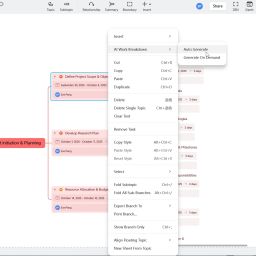
Stephen Repton, CEO and founder of Flowlio shares his predictions for project management in 2025
There will be a lot more projects
Next year will see a lot of turmoil in the world, from the ongoing war in Ukraine and a new regime in Syria to potential new trade relations with the US under President Trump and the growing impact of global warming. Upheaval in the world means that a huge range of companies will need to start new projects to transform and evolve how they work. Factories, steel works and energy companies may need to reimagine how they work to meet new sustainability legislation. Manufacturers may have to develop new supply chains to avoid countries and shipping lanes affected by unrest in the Middle East. Many SMEs could have to adjust products or staffing levels due to economic uncertainty.
Project-management professionals can expect a great deal of demand and pressure to deliver change initiatives in a rapid but smooth manner in terms of cost, time, removing risk, reducing waste and making the best possible use of resources.
Better project management in construction
The UK’s record on delivering new buildings and infrastructure has been chequered, in recent years. Major parts of HS2 were cancelled due to spiralling costs. Huge new entertainment venues, such as the Co-Op Live here in Manchester, failed to open properly on time. Many more engineering and construction projects have failed to meet expectations or stick to budgets. A lot of this is due to unsatisfactory project management. I think the approach has been a bit “finger in the air” and writing plans down on bits of paper. There’s been a lack of focused, central governance over projects or a system-driven approach.
But with the government recently announcing plans for 150 major infrastructure projects, from gigafactories to solar farms, and the already announced ambitious plans for 1.5 million new homes, construction will need to get its act together. It will have to focus more on meeting deadlines and effective resource management. This will take a lot of rethinking its PM approach, but it’s something the sector can’t avoid.
Getting to grips with AI
The use of AI has already started to become part of project management. But I think next year will be the time when the sector really starts to harness it well. People will work out how it can help them do a job faster, but also better, with the AI taking care of a lot of time-consuming bureaucracy. It will become more predictive, showing managers where a project might go wrong, helping them head off problems early. It will also increasingly alert companies to where a project might be necessary to solve previously overlooked issues.
Greater in-house expertise in the public sector
Employing PM consultants to oversee initiatives by local authorities, hospitals or central government might seem a quicker option than training up existing employees. But is unlikely to be as cost effective or efficient in the long term. Consultants can leave projects before they have been seen through to implementation, leaving knowledge gaps about how they work. Upskilling your staff, rather than getting someone external in, boosts morale, career development and ownership in a project, meaning incorporating its results into business-as-usual is likely to be simpler. With the huge scale of change that the public sector is having to deal with, particularly with the new Labour administration, there is likely to be a shift to training existing employees in project management and creating in-house PMO teams that can work across departments.
Centralized software
The more complicated the world becomes, the more there is the need for PM systems that can manage initiatives from a central location, in real-time. It’s not enough for managers to rely on Excel spreadsheets, emails and ad hoc meetings anymore. Projects involving numerous stakeholders, from engineers to HR leaders, need a single point where everyone can report on their task progress, see what others are doing, monitor resources and flag up problems. I think we will see a big shift towards such PM solutions in 20205.
Stephen Repton is CEO and founder of Manchester-based Flowlio. Flowlio offers project-management training for all staff and a SaaS tool for managing projects from initial idea to implementation into business-as-usual. For more information, visit www.flowlio.co.uk















